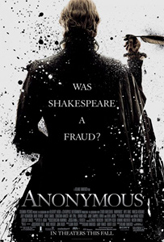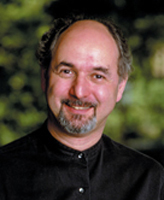
Is the Bard a fraud? Is someone other than William Shakespeare the true author of the some of the most revered works of English literature, as the upcoming movie Anonymous suggests?
“Absolutely not,” according to University of Notre Dame Shakespeare expert Peter Holland, the McMeel Family Chair in Shakespeare Studies and Associate Dean for the Arts.
“The film is based on the idea that the person who wrote Shakespeare’s plays was a genius—which is true—and that therefore he couldn’t have been an ordinary person from a rural town and must have been an aristocrat,” says Holland.
“The doubters of Shakespeare authorship are snobs who believe in the natural intelligence of aristocrats, and director Roland Emmerich’s film adds fuel to their fire.”
Set in the midst of political intrigue of the Elizabethan era, Anonymous offers a conspiracy theory based on thin evidence that Shakespeare was not the author of his plays.
“These theories have not been debated for years by anyone sensible, but there are plenty of nuts out there who believe in conspiracies.”

“As an action movie it promises to be fun. As a serious contribution to scholarship it promises to be ridiculous,” Holland says.
Holland, one of the central figures in performance-oriented Shakespeare criticism, served as Director of the Shakespeare Institute at Stratford-upon-Avon before coming to Notre Dame in 2002. He is a past president of the Shakespeare Association of America, and he is just the fourth editor in the history of the prestigious annual journal Shakespeare Survey. He was elected an honorary fellow at Trinity Hall, his alma mater and one of the 31 colleges that comprise the University of Cambridge.
Among his books are English Shakespeares: Shakespeare on the English Stage in the 1990s and a major study of Restoration drama The Ornament of Action. He has also edited many Shakespeare plays, including A Midsummer Night’s Dream for the Oxford Shakespeare series. In 2007, he completed publication of a five-volume series of collections of essays entitled Rethinking British Theatre History.
Learn More>
Originally published at newsinfo.nd.edu.


